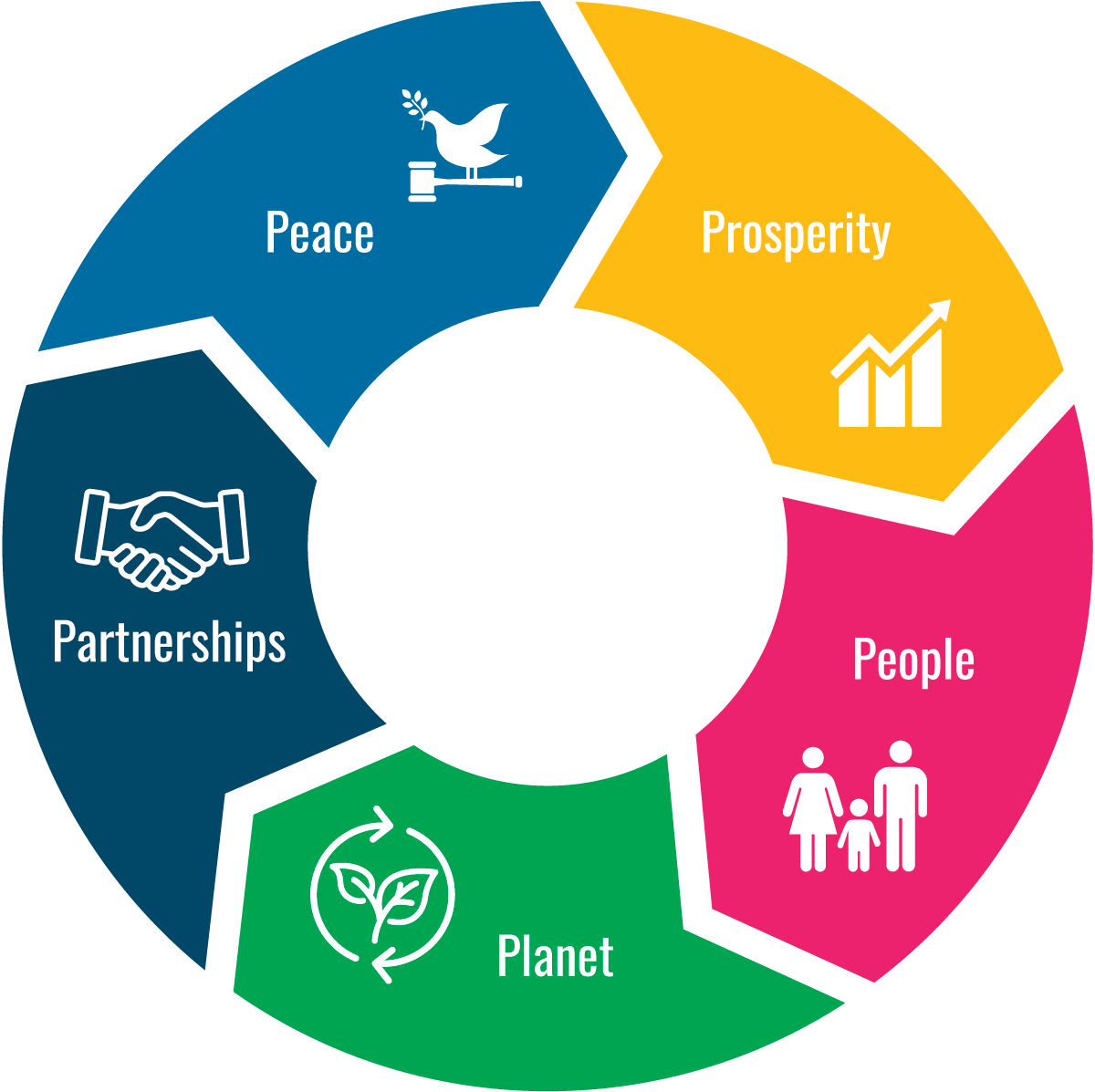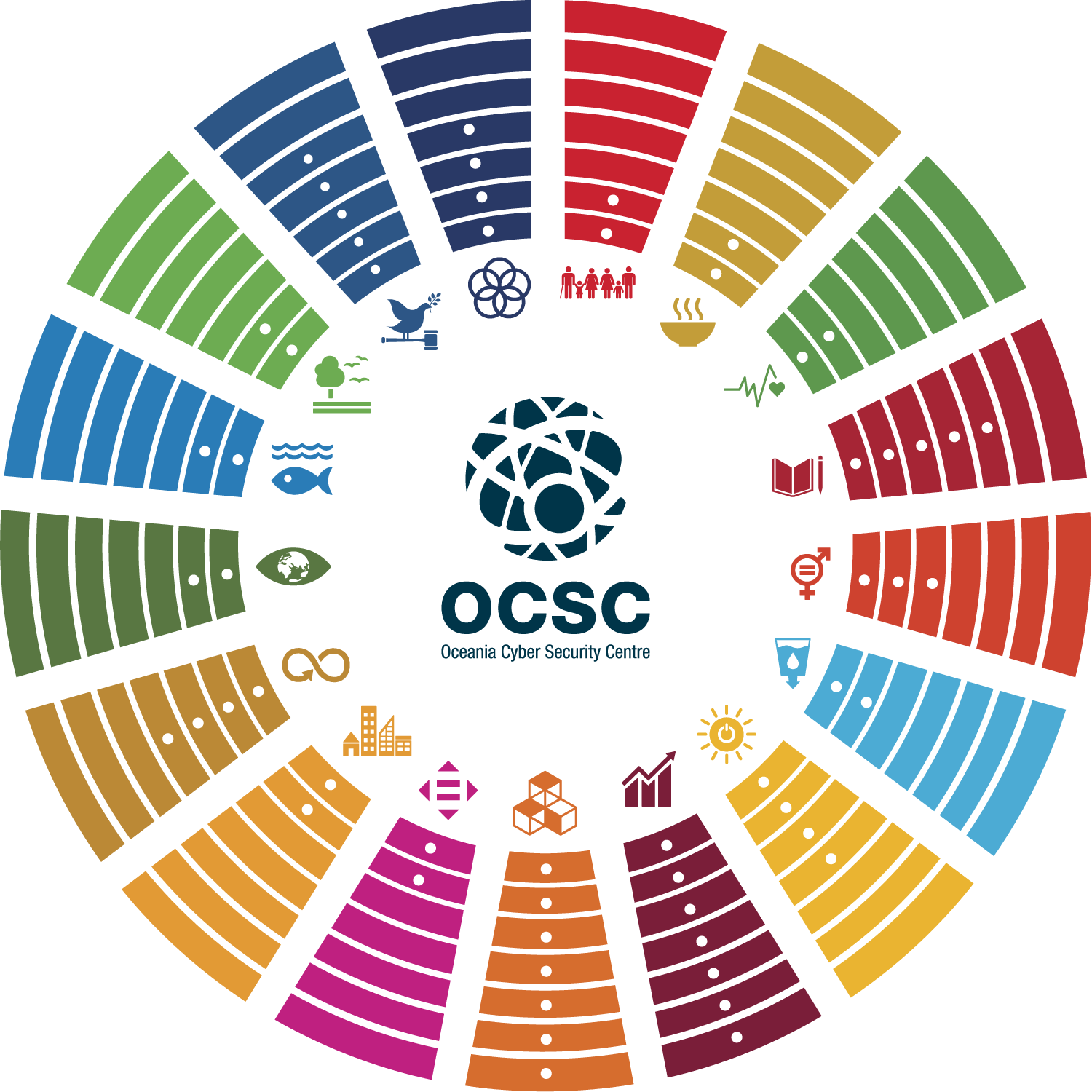OCSC and the 2030 Agenda for Sustainable Development
Understanding the critical link between Cybersecurity Capacity Building and the Sustainable Development Goals
Through the deployment of the Cybersecurity Capacity Maturity Model for Nations (CMM) the Oceania Cyber Security Centre is working to advance the Sustainable Development Goals (SDGs) and ensure the longevity of digital technologies in the Indo-Pacific region. The successful implementation of the SDG indicators relies on the wide-spread adoption of effective digital technologies. Accordingly ensuring adequate cybersecurity is often an underappreciated aspect of achieving the goals and each SDG stands to benefit from greater digital uptake and resilience. Research from the OCSC has found that cybersecurity capacity building through the CMM helps advance all five areas of the SDGs: peace, prosperity, people, the planet, and partnerships.
Technology, Cybersecurity and Sustainable Development
Sustainability and cybersecurity are both transnational, non-traditional, security concerns that are set to define the international political landscape of the twenty-first century. It is easy to see these challenges as disconnected and dissimilar, but in our modern hyper-digitalised world where technology has permeated its way into almost every aspect of our lives, it is no longer possible to separate one from the other. To successfully achieve the 2030 Agenda for Sustainable Development in time we must begin to recognise the interdependent relationship between cybersecurity and sustainability and adopt an integrated approach to pursuing the Sustainable Development Goals (SDGs).

Digital technologies provide both a tremendous opportunity and hurdle in accomplishing the SDGs. Research has shown that Information and Communications Technology (ICT) have the potential to drive down greenhouse gas emissions, reduce waste and drastically improve our systems of consumption and production. ICTs will be one of the key elements that allows us to make the leap from wasteful, fossilised economies to clean sustainable alternatives through the development of things like smart cities, renewable electricity grids, modernised waste management systems, clean transportation, slimline manufacturing and so much more.
However, these benefits will not materialise if the technology they require is not protected. If malicious actors can infiltrate and control ICT assets for their commercial or political gain, then not only will our critical national infrastructure be compromised, but the positive social, economic, and environmental advancements produced by these assets will be jeopardised. Cybersecurity is consequently a fundamental component of ensuring that well-intended sustainable development initiatives that are built on digital technologies cannot be exploited in ways that cause more harm than good.
The Sustainable Development Goals and OCSC
A new report from the Oceania Cyber Security Centre (OCSC) investigates the link between cybersecurity, information technology and the SDGs, and showcases the direct contribution cybersecurity capacity building makes toward achieving the 2030 Agenda for Sustainable Development.
Using the 169 targets within the Global Indicator Framework for the Sustainable Development Goals and comparing them with the CMM, the report has identified how cybersecurity contributes to the goals.

Where OCSC is advancing the Sustainable Development Goals.
By analysing the contribution cybersecurity capacity building has on the SDG Indicator Framework through the CMM, this research has been able to identify in real terms the tangible contribution OCSC has in advancing sustainable development. The CMM is a holistic national cyber-maturity assessment model designed by the Global Cyber Security Capacity Centre (GCSCC) at the University of Oxford which has been deployed in over 80 countries worldwide and is recognised as an international best practice review mechanism. Since 2018, the OCSC has undertaken eight CMM reviews across the Pacific and helped to establish greater digital resilience in the region by building a comprehensive perspective of national cybersecurity capabilities. Each of these countries now benefits from a greater understanding of their own cybersecurity strengths and weaknesses and has been able to increase their digital resilience accordingly. Furthermore, following a CMM review, OCSC and its partners can develop a ‘roadmap’ of initiatives which provide a tangible pathway for enhancing national cyber maturity and accelerating progress towards the goals.
Download the full report, Cybersecurity and Sustainable Development: An Intersectional Analysis, here.

